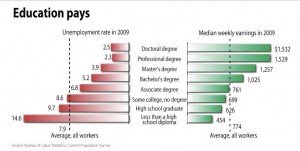Most everyone has in their budget some special projects, purchases or plans that require advance savings to accomplish. If you have created such a wish list, it’s time to seriously begin the planning part.

Start by identifying as accurately as possible what this “dream” item is going to cost. When the figure is set, break the total into as many “payments” as necessary to reach that goal. That’s how much you need to set aside each pay period to fund this goal. Take the “wish list” into consideration if you should happen into any windfalls, bonuses, raises, inheritances or other augmentation of your income. The sooner you achieve one goal, the sooner you can start on another.
Make your goals concrete by putting them down in writing. Purchase or create a chart that lets you see at a glance where you stand vis-à-vis the goal.
It’s likely you will have several savings goals concurrently: a dream vacation, saving for a down payment on a house, building a retirement fund, etc. If you find you are pinching to fund all of them, you have some options: Reduce the list or scale back on some of the goals (a shorter vacation, perhaps?) You can extend the time for some of the larger goals, reducing the periodic savings payment. Or you can reassess your overall budget and see if there is some category that can be reasonably reduced and the money shifted to the savings category. For instance, you may be willing to sacrifice some of your regularly budget entertainment or transportation funds to speed up the long-term goals.
Other tips that will support those goals include setting up automatic deductions when possible, for instance for your 401k, a savings bond program, a brokerage account, etc. Track expenses monthly. If there is a category in which you are overspending, apply self-discipline. Streamlining could save you something to put toward your wish list. When you go out, leave your credit cards and checkbook home. Use cash. Having to hand over something concrete may inspire you to be a bit more stingy when you are out and about.
Above all, keep your attention focused on what it is you want in the future and don’t let the wants of the present rob you of those satisfying financial objectives.



